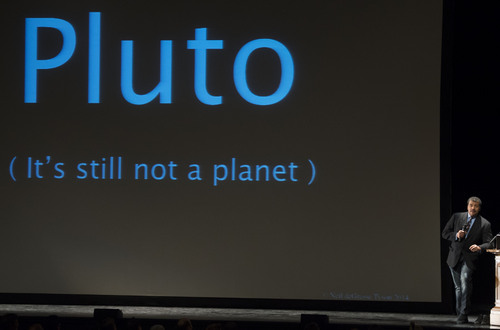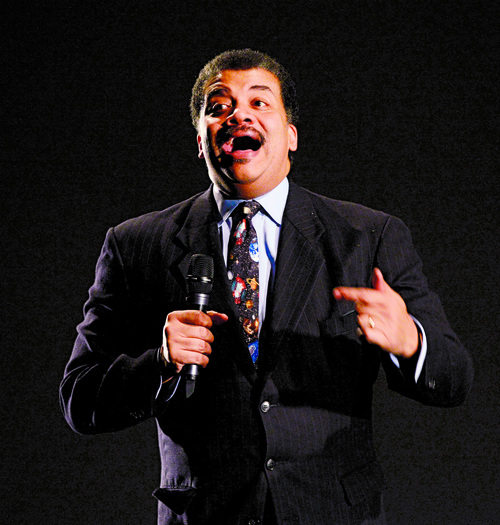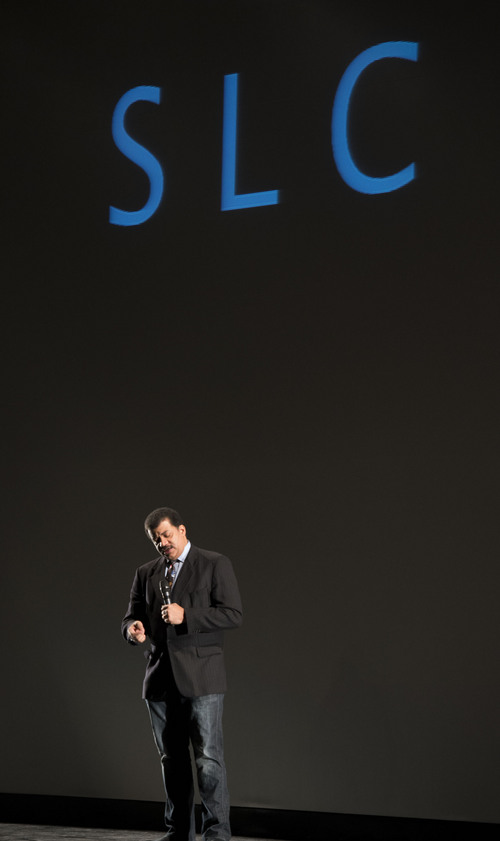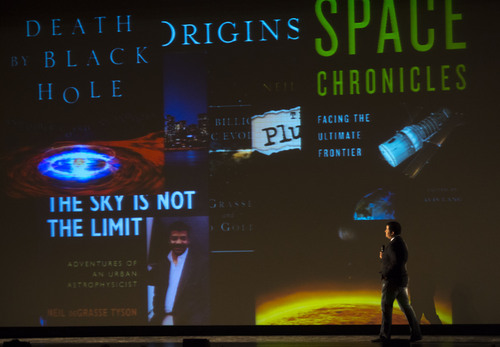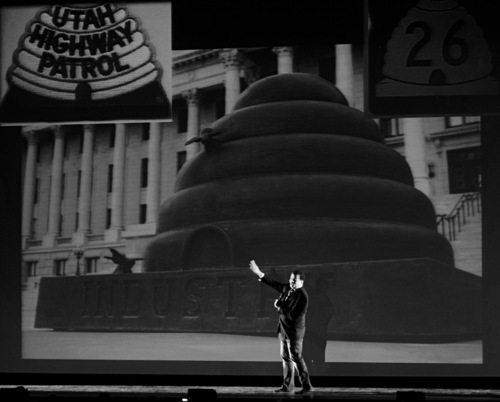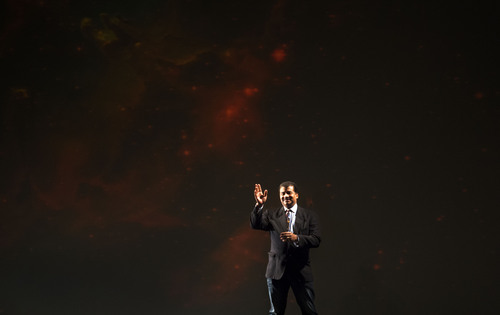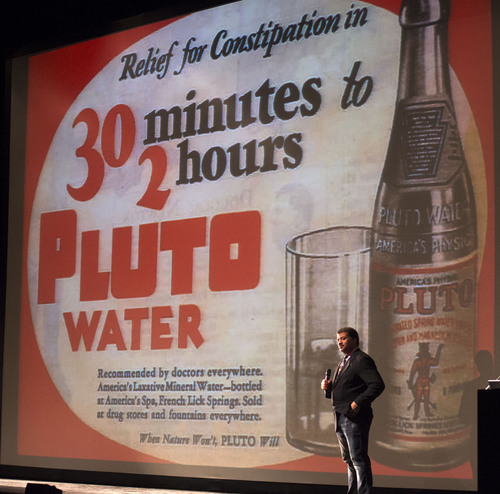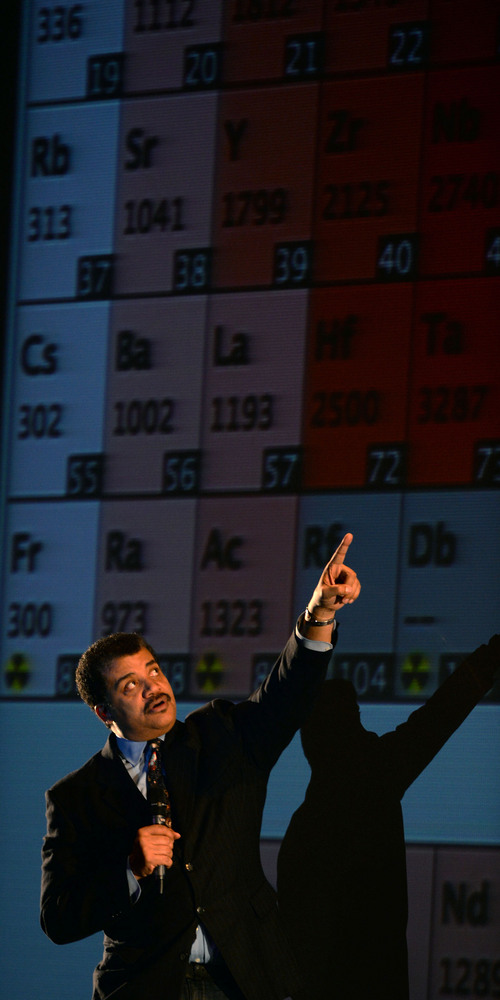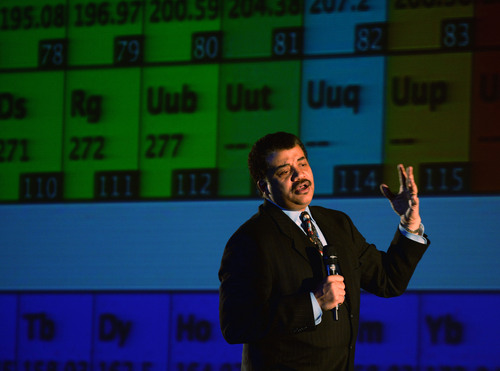This is an archived article that was published on sltrib.com in 2014, and information in the article may be outdated. It is provided only for personal research purposes and may not be reprinted.
When science loses ground in culture, the world becomes darker. We become less able to defend ourselves from natural disasters. We ask fewer questions. We even dream less.
So says rock-star astrophysicist Neil deGrasse Tyson, who spoke to a sold-out crowd at the University of Utah on Wednesday.
"We are steeped in science. All of us. It has shaped the society and culture in which we live. Without it, we'd still be in caves, so you got to embrace it," he said.
That's one of the mission statements of his reboot of the TV show "Cosmos."
"I sense a trend in America that STEM [Science, Technology, Engineering and Math] fields, that they're just a luxury … or you don't need to think about it because we're not interested," he said. "That's not the America I grew up in. I don't recognize it."
He recalled the 1960s, when the country was trying to get to the moon — and despite the political turmoil of the times, artists and writers were imagining what wonders might come next. That changed.
"People stopped dreaming about tomorrow," he said. But there's an easy way to begin to turn that around, he said.
"Being scientifically literate doesn't mean you know science. It just means you know how to ask questions," he said. And in response to an audience member's question about how to encourage exploration in her young son:
"Children do not need help being curious about the natural world. Your job is to make sure they don't die."
Tyson is perhaps the country's most prominent scientific communicator, with an engaging speaking style that connects academic study to popular culture.
He has nearly 2 million Twitter followers and holds the "sexiest astrophysicist" title from People Magazine. On Wednesday, he referenced "my man, Isaac Newton," and his message to those who still mourn Pluto's losing its status as a planet: "Get over it."
Earth's moon, he said, has five times the mass of Pluto.
"If you're gonna be a planet, you can't be walking around with somebody's moons bigger than you are," he said. "You should be embarrassed."
Tyson's lecture sold out within about 90 minutes last month, crashing both the website and the phone line at the 1,900-seat Kingsbury Hall.
"It was pretty much one of a kind," said communications manager Sheri Jardine.
The Tanner Humanities Center, host of Tyson's "Science as a Way of Knowing" speech, opened up about 900 more seats for a live broadcast at three different locations on campus.
One of people who got tickets at Kingsbury, U. student Rachel Wootton, said Tyson is something of a singular figure.
"He's a lot of people's idol," in his ability to make science relevant and accessible to the public, she said. "It's something exciting to see first-hand."
Michael Hamilton, 32, said he's been a fan of Tyson's work for a long time — not least because he breaks a certain mold.
"When I was a kid, every scientist you saw was an old white dude," he said. "He bridges a lot of gaps … I'm half-black, so it's kind of inspirational to me."
Twitter: @lwhitehurst


